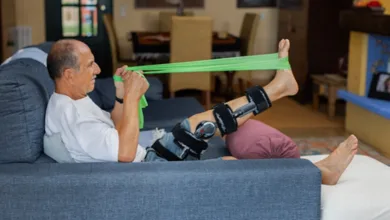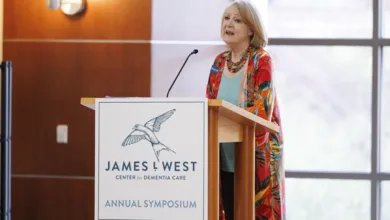Games to Keep Your Brain Sharp

Maintaining cognitive function is crucial as we age, similar to how physical exercise keeps our bodies healthy. Brain games and puzzles are excellent tools for enhancing mental well-being.
Let’s explore the benefits of brain games for seniors and highlight some effective games and puzzles to help keep your mind sharp.
Benefits of Brain Games and Puzzles
Cognitive
Brain games and puzzles improve memory, problem-solving skills, concentration, and focus. These activities challenge different brain areas, maintain functionality, and slow cognitive decline, which helps preserve mental acuity for longer periods.
Emotional
Playing brain games also boosts emotional well-being by reducing stress and anxiety, giving a sense of accomplishment and satisfaction. Social interactions through these games are crucial for mental health, especially for seniors in care settings. Sharing the joy of solving puzzles can strengthen bonds and create memorable moments with loved ones, fostering connection and engagement.
Physical and Neuroplasticity
Surprisingly, brain games and puzzles also offer physical benefits. They stimulate brain activity, promoting better neural connections, hand-eye coordination, and fine motor skills. This neuroplasticity, the brain’s ability to reorganize itself by forming new neural connections, is crucial in long-term cognitive function and health. Regular engagement in brain-stimulating activities builds resilience against age-related decline.

Sharpen Your Brain with These Games and Puzzles
Crossword Puzzles
These classic puzzles improve vocabulary, pattern recognition, and problem-solving abilities. They are accessible online and have varying difficulty levels, benefiting cognitive function and verbal skills.
Sudoku
This number puzzle enhances logical thinking and problem-solving skills by requiring players to fill grids in a specific pattern. Sudoku is available for various difficulties and is suitable for all skill levels.
Memory Games
These are superb for improving memory recall, involving tasks like matching pairs or remembering sequences. Games like “Simon” are excellent for boosting memory skills. Regular practice can help maintain everyday cognitive abilities, aiding in remembering appointments or medication schedules.
Logic Puzzles
These puzzles, which are available in number grids and spatial puzzles, challenge reasoning and deductive skills. They promote critical thinking and a systematic problem-solving approach.

Integrating Brain Games into Your Daily Routine
Set Aside Dedicated Time
Establish a daily schedule for brain games, whether with morning coffee or before bed. Consistency is critical to maximizing cognitive benefits.
Create a Supportive Environment
Designate a quiet space for games to minimize distractions and create a relaxing atmosphere conducive to concentration and focus. Use elements like soft lighting or background music to enhance your experience.
Track Your Progress
Monitor your performance and progress in solving puzzles and winning game challenges using tools like journals or apps to track achievements and provide valuable insights into your cognitive strengths and areas for improvement.
Socialize with Others
Engage friends or family in games, adding a social element that enhances enjoyment and stimulates the brain through lively discussions and friendly competition.
Considerations for Seniors with Specific Needs
Physical Limitations
For those with physical limitations, choose games and puzzles requiring minimal physical exertion. Consider crossword puzzles, Sudoku, memory games, or a favorite one-on-one game like chess that can be played sitting down. Adjusting difficulty levels according to ability ensures a suitable challenge and promotes cognitive improvement.
Cognitive Impairments
Seniors with cognitive impairments may benefit from adapted puzzles tailored to their abilities. Look for simplified versions of games or puzzles designed specifically for individuals with cognitive challenges, often featuring fewer pieces, simpler rules, or visual cues to support gameplay.
Customized Difficulty Levels
Adjust game and puzzle difficulty to match individual abilities. Start with easier puzzles and gradually increase the challenge as cognitive skills improve. Many puzzle books and apps offer a range of difficulty options, allowing you to find the perfect level of challenge.

Best Practices for Long-Term Brain Health
Engage in Mentally Stimulating Activities
Engage in various mentally stimulating activities, like reading or learning new skills. Maintain a healthy lifestyle with regular exercise and a balanced diet. Seek regular cognitive assessments to monitor brain health. Incorporating relaxation techniques like meditation or yoga can reduce stress and support overall brain health.

Maintain Keep a Healthy Lifestyle
Adopt a healthy lifestyle that includes regular exercise, a balanced diet rich in fruits, vegetables, and omega-3 fatty acids, and adequate sleep.
Physical health is closely linked to brain health. Regular exercise improves blood flow to the brain, while a nutritious diet provides essential nutrients for optimal brain function. For support, consider working with caregivers from a home care agency to assist with meal preparation, exercise routines, and other daily activities.
Get Regular Cognitive Assessments
Schedule regular cognitive assessments to monitor brain function and detect early changes. Early intervention can help prevent or delay cognitive decline. Your healthcare provider can provide personalized recommendations for maintaining cognitive health based on your needs and risk factors.

Incorporate Relaxation Techniques
Practice relaxation techniques like meditation, deep breathing, or yoga to reduce stress and support brain health. Chronic stress can harm cognitive function, so incorporating these techniques into your daily routine can promote a calm and focused mind.
Playing games and puzzles helps seniors keep their brains sharp. By incorporating these activities and healthy habits into daily routines, seniors can support long-term brain health and enjoy an active lifestyle. Start challenging your brain today for a sharper mind tomorrow. Dedication and consistency can keep your brain thriving for years.
Conclusion
Maintaining cognitive health through brain games and puzzles is crucial for seniors. By integrating these activities into daily routines and adopting healthy lifestyle habits, seniors can support long-term brain health and enjoy an active, fulfilling lifestyle. Start challenging your brain today to enjoy the benefits of a sharper mind tomorrow.





